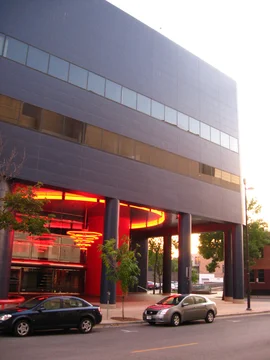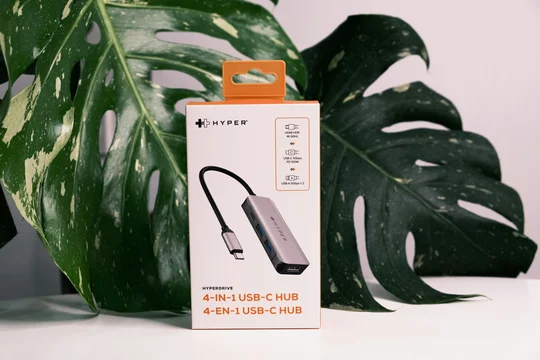
Yesterday, visiting Judge Barker granted a motion to transfer in MCP IP, LLC v. Velocity Outdoor Inc., C.A. No. 24-683-JCB (D. Del.). The Court's opinion is lengthy and thorough, and it looks like the kind of analysis that is going to be cited quite a bit in future transfer motions.
I won't summarize the whole opinion, but a couple of points stood out to me as worth noting for those who may face (or file) transfer motions in patent cases.
The case was filed in Delaware by a company headquartered in Wisconsin, against a Delaware corporation headquartered in New York. The defendant moved to transfer the case to Wisconsin based (in part) on the fact that the accused products are manufactured there by a subsidiary of the defendant.
The Court applied the Third Circuit's Jumara factors, which—as we've observed in the past)—can be tough to apply consistently, and can tend to favor transfer in IP cases.
Plaintiff's Forum Preference - This is the factor that consistently favors plaintiff. As the Court here noted, different judges have given this factor differing amounts of weight depending on the defendant's connection to Delaware. Judge Barker decided to give it its full weight despite the fact that the plaintiff here had no connection to Delaware:
[T]he District of Delaware has given the plaintiff’s choice different weight in different cases. In some, it discounted the weight of the plaintiff’s choice where the plaintiff lacked any connection to the forum state. . . . In others, it reasoned that the plaintiff’s connection to the forum has no bearing on the factor. . . . To ensure that plaintiff’s choice of forum is not lightly disturbed and to avoid double counting factors, this court will assume that this factor remains paramount and is not dampened by plaintiff’s lack of connection to Delaware. Cf. Rampart, 2025 WL 227287, at *2 (“Many of the reasons for lessening the importance of a plaintiff ’s choice in forum are subsumed and given weight under [other] Jumara factors . . . .”). Accordingly, this factor weighs strongly against transfer.
MCP IP, LLC v. Velocity Outdoor Inc., C.A. No. 24-683-JCB, at 11 (D. Del. Aug. 19, 2025).
Here are notes from some of the more interesting Jumara factor analyses here:
Whether the Claim Arose Elsewhere - The Court declined to hold that a patent case like this arises everywhere the defendant sells infringing products. It noted that the products are manufactured in Wisconsin, and that the alleged indirect infringement (e.g., importation and sale of components) also takes place in Wisconsin. It found that this factor therefore weighs in favor of transfer.
Convenience of the Parties - The Court found this factor to be neutral, although it noted that it would be more convenient for the plaintiff's own witnesses to testify in Wisconsin than Delaware.
Convenience of the Witnesses - The Court found that this factor favored transfer due to some third party witnesses, who are employees of a company owned by the plaintiff's owner. Id. at 15. It noted that the plaintiff did not represent that it can compel these witnesses to appear:
[D]efendant identifies Mathews Archery employees as non-party witnesses who are outside the subpoena power of Delaware and who reside in Wisconsin. . . The court agrees. Mathews Archery is owned by plaintiff’s owner, but plaintiff has not represented that it has the ability to ensure that the Mathews Archery employees attend trial in Delaware. Instead, plaintiff argued at the hearing that those employees would not be called as witnesses. Maybe plaintiff does not plan to call them. But defendant argues that they “have information relevant to marking issues, the value of the invention, and damages.” . . . In other words, they have highly probative information and might be called. Those potential witnesses are likely within the subpoena power of the Western District of Wisconsin but not this court. . . . To travel to this court would require them to board a plane, miss at least some work, and possibly stay overnight outside of their home state. Unless they were required to by law or by their employer, there is an appreciable chance that they would simply refuse to do so. . . . Because of the chance that Mathews Archery employees would be unavailable for trial in Delaware but not Wisconsin, this factor pushes in favor of transfer.
Id., 15-16.
Practical Considerations - The Court found that this factor favors trial, in part because there is already an ongoing dispute between the parties in Wisconsin, and because the parties have no connection to Delaware.
Notably, the Court also sua sponte raised the cost of local counsel as favoring transfer:
The Western District of Wisconsin’s local rules expressly provide that “[n]on-resident lawyers need not retain local counsel to assist in the presentation of their cases unless specifically directed to do so by a judge or magistrate judge.” W.D. Wis. LR 83.5(D); cf. D. Del. Rule 83.5. Although the parties did not brief the issue, it is at least plausible that transferring to the Western District of Wisconsin would save costs associated with Delaware local counsel.
Id., 17.
Administrative Difficulty from Court Congestion - The Court found that this favors transfer. Given that this case is assigned to a visiting judge, the plaintiff argued that the congestion level of the visiting judge's forum should apply, rather than that of Delaware. The Court disagreed, noting that it could theoretically have to recuse from the case:
In some cases, District of Delaware judges have looked at the congestion of the court from which the sitting judge is visiting. . . . But in others, they have looked at the congestion associated with the District of Delaware even though the sitting judge is stationed elsewhere. . . . The latter approach seems to be the more principled one. For one, Jumara instructs the court to compare “relative administrative difficulty in the two fora,” not the two judges’ dockets. . . . And further, if the undersigned were to recuse for some reason, then the case would be reassigned to a District of Delaware judge, not an Eastern District of Texas judge.
Id., 18.
Local Interest - The Court declined to follow the idea that patent cases are inherently national:
“[C]ourts in this district have held that the ‘local interest’ factor is typically neutral in patent cases because in general a patent infringement action is ‘more properly described as a national controversy.’” . . . But at least one judge in this district has concluded that “if there are significant connections between a particular venue and the events that gave rise to a suit, this factor should be weighed in that venue’s favor.” . . . . There is a significant connection between the Western District of Wisconsin and the events that gave rise to the present lawsuit: that is where plaintiff and Ravin are headquartered, where the accused products are designed and manufactured, where the patented technology was invented, and where the entity that sells the patented technology is located. And besides the national sales of Ravin products, the only connection to Delaware is the incorporation status of defendant. This factor weighs slightly in favor of transfer.
Id., 19.
Back to Wisconsin
The Court ultimately found that the score was six to one, requiring transfer, and noted that the Jumara result made practical sense:
Even though plaintiff ’s choice of forum is the most important factor in the above analysis, that is the only factor resisting transfer. It loses to the six in favor. To transfer under such circumstances does not disturb plaintiff ’s choice lightly. Plaintiff’s choice instead yields to defendant’s strong showing that the Western District of Wisconsin is the more convenient forum—a result that comports with the legal framework and with common sense.
Id., 19-20.
If you enjoyed this post, consider subscribing to receive free e-mail updates about new posts.



